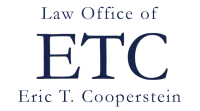 The Minnesota Supreme Court appears ready to open the bar admissions door just a little wider – at least enough for some graduates of unaccredited law schools, modifying the recommendations of a year-long study and report (9 MB) by the Minnesota Board of Law Examiners (MBLE).
The Minnesota Supreme Court appears ready to open the bar admissions door just a little wider – at least enough for some graduates of unaccredited law schools, modifying the recommendations of a year-long study and report (9 MB) by the Minnesota Board of Law Examiners (MBLE).
Under the present rules, there are essentially two ways to get admitted to the bar in Minnesota: by taking and passing the bar exam or by practicing law in another jurisdiction for five of the past seven years (different rules may apply to in-house counsel). But these routes to admission are only open to graduates of ABA-accredited law schools. If you went to one of a handful of unaccredited law schools in the United States (mostly in California) or graduated from a law school in a foreign country, you cannot be admitted to the Minnesota bar unless you go to law school again at an ABA-accredited school. In fact, I know several foreign lawyers who had to do just that. Minnesota is in the minority of jurisdictions that adhere to this strict rule.
In April 2009, several Minnesota residents who had been licensed to practice law in other jurisdictions filed a petition with the Minnesota Supreme Court to amend the bar admission rules to allow them to sit for the Minnesota bar exam despite having not graduated from an ABA-approved law school. The Court, in turn, asked the MBLE to study the issue and report back to the court.
MBLE’s lengthy and quite thorough report analyzes the difficult issues surrounding how a state should determine whether individuals are competent to practice law. The ABA’s accreditation arm sets and enforces rigorous standards for law schools, such as the types of courses offered, the size of classes, availability of clinical courses, well-stocked libraries, etc. Of course, there is no empirical evidence that links each of those standards to success in practice.
Similarly, we rely on the bar exam as a measure of prospective lawyers’ competence to practice but there are no studies that reveal whether lawyers who failed the bar exam one or more times before passing are any less successful than lawyers who passed the first time. And we do not have any way of knowing whether lawyers who failed the exam and gave up might still have been successful lawyers.
The MBLE evaluated these hard questions and recommended no change in the rules regarding who is eligible to sit for the bar exam. MBLE did suggest, however, that the Court should consider admitting attorneys from other jurisdictions based on a “substantial” number of years of practice, without regard to the accreditation status of their law school. Call it the “uber waive-in rule?”
The Minnesota Supreme Court, however, appears poised to take a hybrid approach. In an order the Court issued August 13, 2010, the Court asked the MBLE to draft and file a proposed rule amendment that would “permit a licensed attorney who has successfully practiced law in another United States jurisdiction for a specified number of years to sit for the Minnesotabar examination and, if successful and otherwise qualified, be admitted to the practice of law in Minnesota notwithstanding the fact that the attorney had not graduated from an ABA approved law school.” This is very close to the suggestion submitted to MBLE by the MSBA Rules of Professional Conduct committee.
The proposed rule amendment must be filed by September 30, 2010, and will be followed by a notice and comment period. I wonder whether the ABA accreditation committee will share its thoughts.
UPDATE: In June 2011, the Minnesota Supreme Court adopted amendments to the admissions rules in Minnesota that allow graduates of unaccredited law schools who have been admitted in another U.S. jurisdiction and practiced law for 5 of the last 7 years to sit for the Minnesota bar examination.
